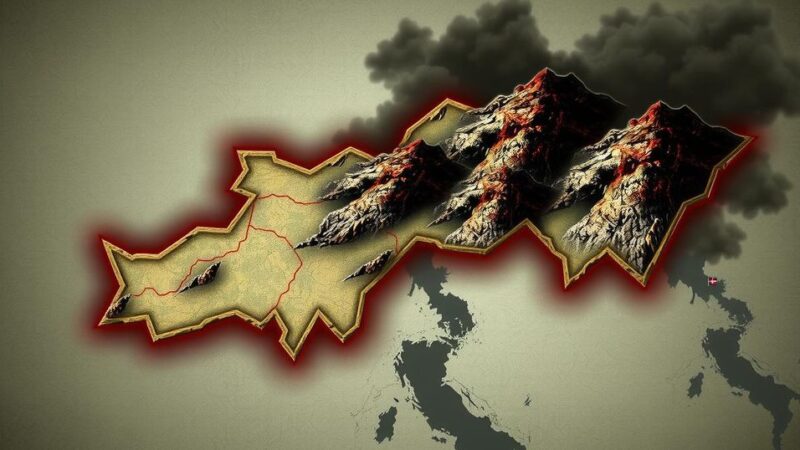Yahya Al-Sinwar, the leader of Hamas, was killed by Israeli forces in Gaza during a routine patrol. His death is a critical blow to Hamas as he was a significant strategist within the group, known for orchestrating various operations against Israel. Al-Sinwar was a controversial figure, influencing perceptions of Hamas while simultaneously being a key target for Israeli military actions. His legacy intertwines with that of the Izz Al-Din Al-Qassam Brigades, reflecting the complexities of resistance movements in the region.
Yahya Al-Sinwar, the reclusive leader of Hamas, was killed in an encounter with Israeli forces during a routine patrol in Gaza, as reported by the Israeli military on Thursday. His death represents a substantial setback for the militant group. According to officials, Al-Sinwar’s body was later transferred to Israel, where it was verified through DNA and dental records due to its sensitive classification. The Israeli military confirmed that the patrol led to an exchange of gunfire, resulting in the deaths of Al-Sinwar and two other armed individuals, asserting that the clash was incidental and not based on intelligence operations. Al-Sinwar, often designated as the “Hamas Defence Minister” by Israeli authorities, was a significant figure in the ongoing conflicts in the Middle East. His strategic acumen, particularly showcased in the planning of the “Al-Aqsa Flood” operation, made him a primary target for Israeli assassination efforts. Born into humble beginnings in Khan Yunis, southern Gaza, he was instrumental in establishing Hamas’s military branch during the first Palestinian intifada. Although his imprisonment could have been perceived as a setback, he utilized the opportunity to engage with Israelis, learn their language, and overcome personal hardships, rising to prominence within Hamas upon his release in 2011. After his release, Al-Sinwar expressed a desire for a ceasefire and economic stability for Gaza, intending to alter perceptions regarding Hamas from a violent militant group to a governing body. This shift in narrative initially led Israel to reduce its vigilance along the Gaza border, erroneously viewing Hamas as transitioning towards governance rather than continued insurgency. Yet, Al-Sinwar was the architect behind the October 7 attacks, maintaining his status as a prime target for Israeli counter-action. In a concerning reference, Prime Minister Benjamin Netanyahu compared him to “a little Hitler in a bunker.” The Izz Al-Din Al-Qassam Brigades, Hamas’s military wing established in the 1980s by Salah Shehadeh, emerged prominently during recent conflicts. This group, which is rooted in a right-wing Sunni ideology, recalls the legacy of historical resistance fighters like Izz Al-Din Al-Qassam, who opposed British colonial rule and whose actions ignited significant revolts within the Palestinian movement. Yahya Al-Sinwar’s legacy encapsulates resilience against oppression, and he navigated a complex web of deceit and strategic maneuvers that posed persistent challenges to Israeli security. As the ongoing situation in Gaza unfolds, it is situated within a matrix of historical and geopolitical factors that shape the narrative of this protracted conflict.
Yahya Al-Sinwar’s leadership within Hamas has significantly impacted the dynamics of the Israeli-Palestinian conflict. His rise from poverty in Gaza to a prominent military and political figure within Hamas showcases the transformative effects of personal experiences, particularly during his imprisonment. Al-Sinwar’s role in crafting military strategies and political narratives has shaped perceptions of Hamas both internationally and within Israeli strategic frameworks. His actions, including orchestrating operations that challenge Israeli forces, have led to an escalation in tensions, making him a focal point in the regional conflict.
The death of Yahya Al-Sinwar represents not only a loss for Hamas but also signifies the intricate interplay of conflict, resistance, and leadership strategies within the broader Israeli-Palestinian struggle. His life journey from a humble background to a leading figure underscores the complexities inherent in the region’s political landscape, marked by enduring legacies of resistance. As the situation continues to evolve, the implications of Al-Sinwar’s strategies, and the historical narratives intertwined with them, will undoubtedly influence future developments in Gaza and the surrounding region.
Original Source: www.dailynewsegypt.com






